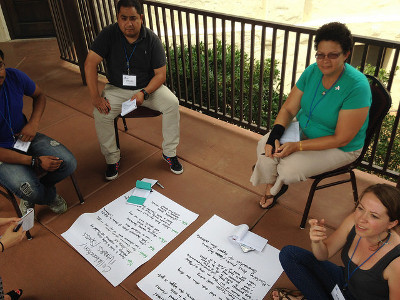 At the end of July, we gathered in California's Tehachapi mountains for the California Nonprofit Technology Leadership Summit. Participants included nonprofit staff, grassroots organizers, students, and many mentors that we've known from our CATechFests over the past five years. Taking place in the National Cesar Chavez Center, this two-day retreat was designed to strengthen a network of rural and urban leaders through dialogues, workshops, and skillshares.
At the end of July, we gathered in California's Tehachapi mountains for the California Nonprofit Technology Leadership Summit. Participants included nonprofit staff, grassroots organizers, students, and many mentors that we've known from our CATechFests over the past five years. Taking place in the National Cesar Chavez Center, this two-day retreat was designed to strengthen a network of rural and urban leaders through dialogues, workshops, and skillshares.
Capacity building through facilitative leadership
When we think about scaling up capacity building, we envision growing a community of people who want to share their direct experiences and knowledge which is learned through practice and proximity to the grassroots. At the CA Tech Summit, we were able to strive towards these capacity building goals through the emergent leadership of new and seasoned facilitators. Here are just a few memorable sessions from the Summit: 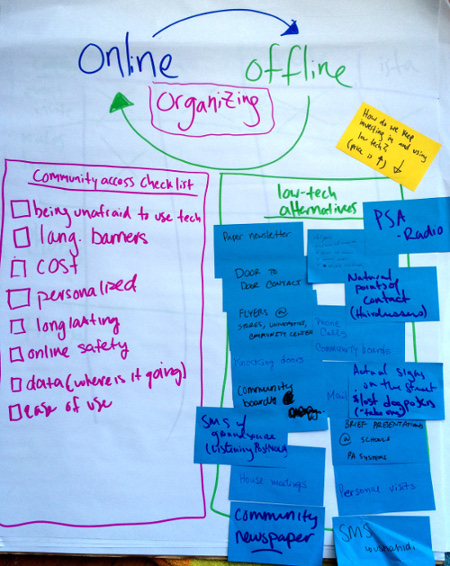
- During a communications workshop, participants from Kern County's Dolores Huerta Foundation inventoried and explored low-tech tactics for community organizing in rural California— a perspective that is often overlooked in technology (aka tech-centric) discussions.
- Early on in the event, A.D. and Angelica from Students Making a Change explored the material layer of technology development (metals, plastics, waste), and how it fits into social justice and technology struggles. This was the first time environmental justice topics claimed space in our agenda brainstorm.
- During one-on-one skillshares, Khon from Center for Multicultural Cooperation shared multimedia skills through a hands-on digital SLR camera workshop. These kinds of brief mentoring opportunities helped build practical skills and emphasized the value of direct experience.
- Collaborating with JC, participants cocreated a checklist for Adaptive Bilingual Community Outreach, which continues to be iterated and improved.
Exploring the significance of the land
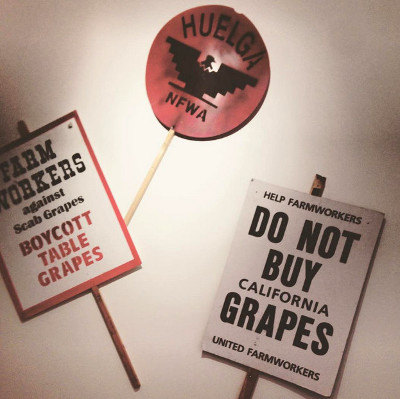 It was an honor to stay on the land where Cesar Chavez lived and labored during the last few years of his life, and the venue provided many opportunities to get in touch with the history of the space. Thanks to the hospitality of the Cesar Chavez Foundation, participants were given the opportunity to explore the land, take a tour, go on hikes, and visit surrounding landmarks. On the second day, Paul Chavez, Cesar's son, graciously joined our lunch hour to share his family's stories of the United Farm Workers movement.
It was an honor to stay on the land where Cesar Chavez lived and labored during the last few years of his life, and the venue provided many opportunities to get in touch with the history of the space. Thanks to the hospitality of the Cesar Chavez Foundation, participants were given the opportunity to explore the land, take a tour, go on hikes, and visit surrounding landmarks. On the second day, Paul Chavez, Cesar's son, graciously joined our lunch hour to share his family's stories of the United Farm Workers movement.
Talking strategy and sharing tactics
During the second morning, participants had the opportunity to share or learn tactical technology and campaigning skills in small groups. This activity works best when participants share openly. From our small group, several sessions emerged: 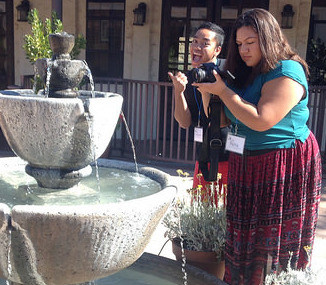
- Project Management
- Taking a photo with DSLR camera
- Public Speaking
- Get more likes on social media
- Tai Chi and Meditation
- Online communications
- Introduction to Linux
- HTML The Lazy Way
- Collaborative Design Process
- Photoshop 101
- Youth Media
- Build a Social Media Presence
- Sharing participatory mapping skills
- Batch File Operations : Shortcuts on Apple
Join a community of mentors and leaders
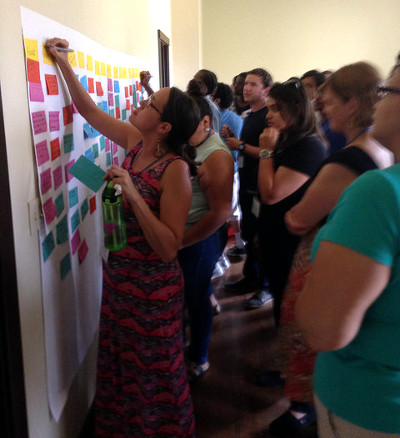 We are beyond thankful for everyone that made this event possible. This week, we are meeting with our friends and fellow CA Tech Fest organizers to kick off the next state-wide California Nonprofit Technology Festival. The two days we spent in the mountains inspired us to continue growing, holding space, and supporting nonprofit leaders around the state. We would love for you to join us at the next convening. Sign up to our newsletter or send us an email.
We are beyond thankful for everyone that made this event possible. This week, we are meeting with our friends and fellow CA Tech Fest organizers to kick off the next state-wide California Nonprofit Technology Festival. The two days we spent in the mountains inspired us to continue growing, holding space, and supporting nonprofit leaders around the state. We would love for you to join us at the next convening. Sign up to our newsletter or send us an email.

